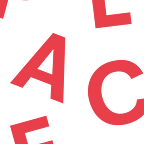Place-based working: Our learning so far
Authors: Alice Evans and Habiba Nabatu, March 2018
During the last two years, we have been supporting a range of partners, and a small number of places to focus on how they can enable the conditions for change to flourish. We are sharing what we have learned, so far. We attach no meaning or solutions to these statements yet, we are merely sharing them for now and will be unpicking them in our learning and blogs.
● Systems produce outcomes NOT individuals or organisations
● We are all right, but only partially
● Emotions are hard; we run from them, and that blocks change and creates divisions.
● We all hold different world views, stating our assumptions and coming back to test and reflect on them can start to build clarity and understanding.
● People are resistant to/fearful of being honest about their motivations, their struggles, and this can make it difficult to progress.
● It takes time for the reality of a situation to emerge, it might take three years to reveal what’s going on, and for some of the tensions start to become more apparent. A lot of the initial work only scratches the surface.
● Often you won’t have the full picture of a place or what is going on, and very probably you never will.
● Even if our focus is on place, people are still very much bound by the organisational role they hold.
● The narrative people tell about an area has an impact on their ability to act.
● Inspection regimes telling people that they are failing can create a toxic atmosphere locally.
● People don’t trust what they’re not part of, at many levels, so the pace will almost always differ.
● People need protected space to take risks, think creatively, and to try different things.
● People, employed within the various fields and roles, struggle to work with uncertainty, and the organisations, systems they work within rarely support them to build these skills.
● People who access support are often better at handling uncertainty and complexity than those in professional roles.
● Interventions are important of course — and yet so much of what happens is as a result of relationships that are built.
● A collective sense of powerlessness seems to permeate most of the systems surrounding people facing severe and multiple disadvantage that this can lead to paralysis.
● There is tension between action and reflection. People tend to value action more.
● People who access support aren’t enabled to listen. They are institutionalised into selling their story.
● Lots of public services/processes evolved to clear and manage human imperfection rather than respond and celebrate it.
● There is loads of flexibility in systems, people are not empowered to use it.
● Stigma and labels exist towards all people in the system.
● We don’t take time to unpick the stories we tell about ‘ourselves’ and ‘others’ and the impact that has.
● There is conflict. Many of us are unskilled in dealing with it head-on.
● When the ‘they’ go away and ‘we’ turn up you see the change start to happen
● Different tools and methods, such as ORSC and deep democracy, can help reveal what is going on in place-based systems. And once this is revealed change happens naturally.
● There is no collective responsibility for people and things that fall in between organisations and role
● Scale is seen as spreading a model. Not as growing people’s mind-sets, capacity and agency.
● There is a lot of talk about other people’s needs, not enough on mutual strengths, capabilities and needs.
